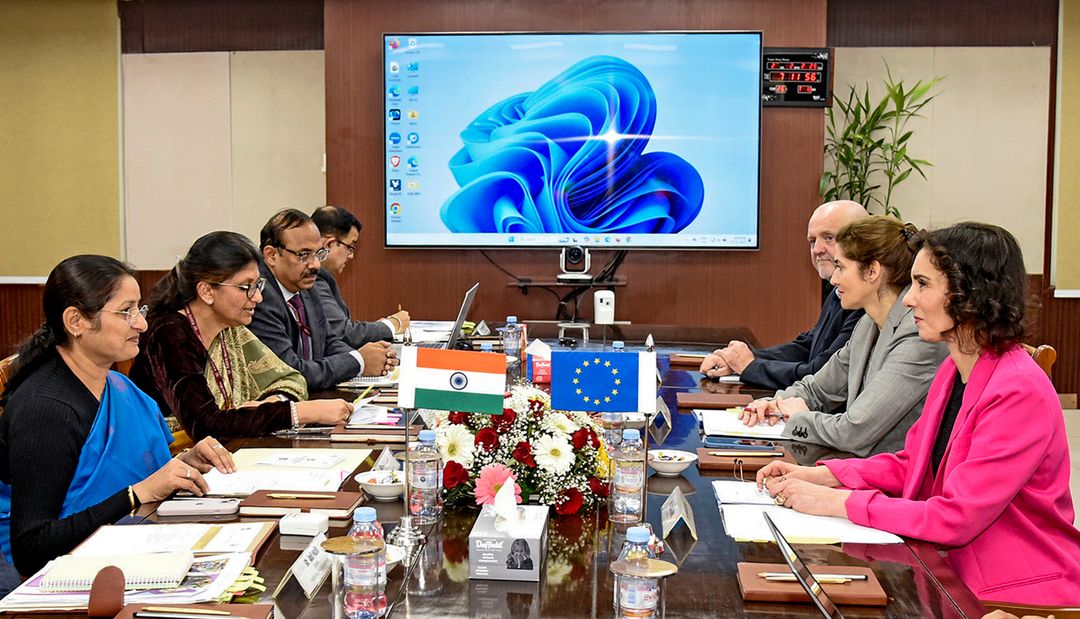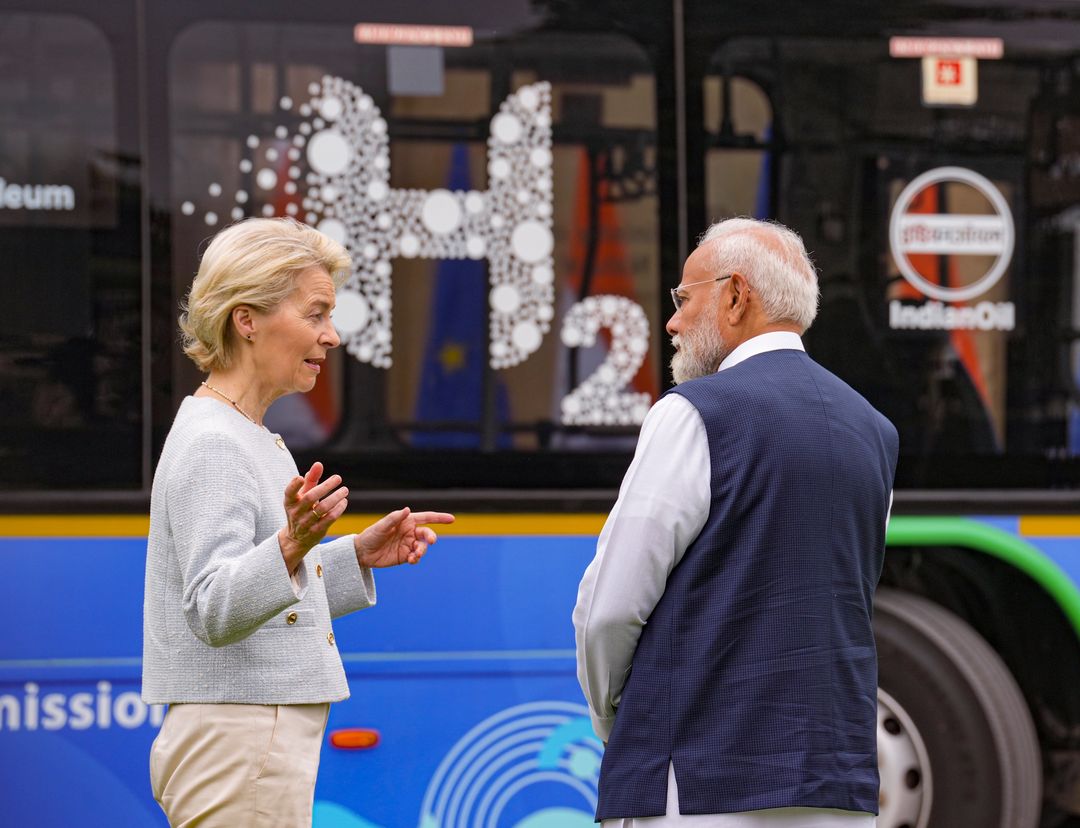India and the European Union (EU) on Friday assessed progress towards the proposed Free Trade Agreement (FTA), a key initiative aimed at enhancing bilateral trade and investments between the two economic powers.
Commerce and Industry Minister Piyush Goyal met with European Commissioner for Trade and Economic Security Maros Sefcovic in New Delhi, where they discussed the status of negotiations and outlined future steps to advance economic collaboration.
In a post on social media platform X, Minister Goyal stated, “Had a candid and insightful discussion with EU Trade Commissioner @MarosSefcovic over breakfast today on the India-EU FTA and the progress of the Trade and Technology Council. Exciting times ahead as we work towards elevating our trade and investment ties to the next level as trusted partners.”
Commissioner Sefcovic is currently in India along with European Commission President Ursula von der Leyen and senior EU political leaders for an official visit.
The meeting comes ahead of the crucial tenth round of FTA negotiations, scheduled to take place from March 10-14, 2025, in Brussels. Earlier, in January, Minister Goyal visited Brussels to meet EU trade officials, underscoring both parties' commitment to resolving pending trade issues and achieving meaningful progress.
Significant Progress Amidst Global Economic Challenges
Strengthening India-EU economic ties has taken on renewed significance amidst global trade uncertainties, notably due to potential higher tariffs threatened by former US President Donald Trump. Currently, India remains the fastest-growing major economy globally, projected to expand at 6.4% during the financial year 2024-25.The ninth negotiation round covered essential topics including trade in goods, services, investment, and government procurement. Other critical discussions included rules of origin, sanitary and phytosanitary (SPS) measures, and technical barriers to trade.
Negotiations, which initially resumed in June 2022 after being stalled since 2013 due to differences in market openness, are now actively focusing on contentious issues. The EU seeks substantial tariff reductions in sectors like automobiles, wines, and spirits, along with a stronger intellectual property rights framework. India, meanwhile, aims to secure Data Security Status for its thriving IT sector, a crucial factor for the secure flow of sensitive information.
Trade Dynamics Between India and the EU
In fiscal year 2023-24, India's bilateral trade in goods with the EU reached USD 137.41 billion, comprising USD 75.92 billion in exports and USD 61.48 billion in imports. The EU remains India's largest trading partner, accounting for approximately 17% of India's total exports, while India makes up 9% of the EU's total exports.Key Indian exports to the EU, such as ready-made garments, pharmaceuticals, steel, petroleum products, and electrical machinery, are expected to become significantly more competitive once the FTA is finalized.
Additionally, the bilateral trade in services between India and the EU stood at approximately USD 51.45 billion in 2023.
Importance of Geographical Indications and Investments
Apart from the FTA, both sides are actively negotiating an investment protection agreement and an agreement on Geographical Indications (GIs). GIs refer to agricultural, natural, or manufactured products unique to specific geographical regions, reflecting distinct quality and authenticity. Such agreements are crucial to preserving and promoting region-specific products, benefiting producers from both economies.As per data from economic think tank Global Trade Research Initiative (GTRI), the EU exported USD 416 million worth of wine to India in FY24 alone. The bloc's automobile and auto parts exports to India exceeded USD 2 billion, including USD 416 million worth of fully built-up vehicles. A significant portion of EU automotive exports arrives as completely knocked-down (CKD) units, attracting a tariff rate of 15% for local assembly and sale.
Currently, around 6,000 European companies operate in India, with the EU’s total investments in the country exceeding USD 117 billion. Indian investments in the EU are valued at approximately USD 40 billion.
With renewed momentum and focused dialogue, both India and the EU remain optimistic about reaching a mutually beneficial agreement, which promises substantial economic opportunities for businesses and consumers across both regions.


